
Our targets
In line with our corporate values and with European regulations, we ensure physically safe and productive work environments, we nurture mental wellbeing and we encourage career development. All Pfleiderer workers are treated fairly, with the protections, freedoms and rights expected in Germany.
We actively monitor recruitment, pay, performance assessment and promotions to discourage discrimination. We engage all employees and our local communities, and have in place the controls to manage any issues that arise.
“Our safety-first culture, focusing on prevention and in-depth training, is delivering consistently safer workplaces for our employees.”
Gradislav Gligorijevic
Head of Quality, Health and Safety
Reducing employee and contractor accidents and achieving a lost-time accident frequency rate for each of 0.5 per 200,000 hours worked (LTA-FR2) by 2025
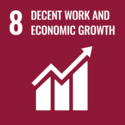
Pfleiderer fosters a safety-first culture. Prevention is our top priority to ensure the safety of our employees in the best possible way. In the medium term, our goal is to further reduce the number of accidents and the absenteeism rate to achieve zero accidents in the long term. This applies to both Pfleiderer employees and employees of contractors working at our sites.
Since 2016, we have consistently recorded fewer reportable accidents from a statutory perspective. However, we are recording more accidents overall internally thanks to better safety-related reporting. Our accident rates are significantly below the 2015 to 2020 occupational safety reference value of the German Employers’ Liability Insurance Association for Wood and Metal.
To further minimise our accident rate of 1.6 (LTA-FR2) and achieve our goal of zero accidents, we are continuously working to optimise our processes. In addition, we have introduced an evaluation system to link indicators to a range of preventive measures that form the basis for occupational and process safety and report on these regularly. These include near-miss rates and the safety training level (SAM).
| 2020 | 2021 | 2022 | 2023 | 2024 | Target 2025 | |
| Lost-time accident frequency rate per 200,000 worked hours (LTA-FR2) observations in per cent | 2.1 | 2.1 | 1.9 | 1.4 | 1.6 | 0.5 |
Case Study 1

Safety measures involve either behaviour change or process change. An example of the latter is a new hazard detection solution which ensures operator safety in high-risk tasks such as sawing.
The ‘Hand Guard’ table saw is a stunning piece of high-technology which uses digital optical recognition and bespoke software to detect danger instantly, and stop the saw blade immediately. This new system both eliminates injury risk and maintains productivity.
Increase the share of employees participating in the near-miss reporting to 75% in 2025

For any preventative system to be successful, the participation of the employees concerned is indispensable. A valuable indicator for the acceptance of our preventative system is the participation of our employees in its respective measures. A keystone of the preventions system is the near-miss observations recorded. A valuable performance indicator of employee buy-in is the share of employees reporting near-miss observations, which currently is at 48%. We aim to increase the share of employees participating in the near-miss reporting to 75% in 2025.
Near-Miss-Reportings: Our performance and target
| 2020 | 2021 | 2022 | 2023 | 2024 | Target 2025 | |
| Share of employees who submitted near-miss observations in per cent | 42 | 49 | 51 | 46 | 48 | 75 |

By 2025, 100% participation of staff in compliance training as well as documentation of such training

Effective governance for a clear direction
Training of our workforce plays a major role at Pfleiderer. For example, we have firmly anchored compliance training in the organisation and are expanding it at our locations to ensure compliance with our governance principles and value systems. Pfleiderer Compliance

The target in the field of governance is for all employees and contractors to abide by the terms of our Business Conduct Guidelines and our Compliance System.
Our way of working aims for zero deviation from the Guidelines. Our compliance system instructs us to prevent unwanted outcomes, recognise issues when they arise and apply appropriate responses where required.
A management handbook contains all regulations concerning our corporate duty of care, the quality management of our products, energy efficiency, and the protection of our employees and the environment. The manual also applies to the subsidiaries Heller Holz GmbH and JURA-Spedition GmbH.

For more on governance please visit our website, pfleiderer.com
If you wish to submit a concern via the whistle-blowing system, please visit the dedicated website.
Achieve at least 25% women on the Executive Board of Pfleiderer Deutschland GmbH by 2027

Our employees are our most valuable asset. They coin our corporate culture with their individual personalities and skills, their life experience and their knowledge, their inventiveness and talent, and contribute significantly to the success of the company.
We cultivate and promote this diversity and have developed a Diversity Policy to do so.
It is designed to protect the individuality of each person and to ensure respectful interaction, tolerance and equal treatment in the workplace. Diversity Policy Pfleiderer Group BV
Pfleiderer has around 2,000 employees, the vast majority of whom remain with the company for around 17 to 18 years; employee terminations are relatively rare.
We offer our employees a work environment that takes into account the various aspects and challenges of work and family life.
Case Study 2
With the help of various working time models, we support employees in their individual life situations. Home office, flexitime and part-time work for older employees are natural pillars of working time flexibility for us.
Even before the Covid-19 pandemic, office employees (desk workers) had the option of working up to 50% of their working hours from home via a supplementary agreement to their employment contract. Pfleiderer can also approve individual agreements, for example a temporary adjustment of working hours or a sabbatical, after consultation.
Case Study 3
Pfleiderer trains young people in both the industrial and commercial sectors. Many of our long-standing employees started their careers with us as trainees in one of these areas. Many managers come from our own ranks; they have prepared themselves for these positions through internal or external qualifications and further training. Pfleiderer accompanies these developments with structured succession planning.
“PFLEIDERER IS KNOWN FOR ITS HIGH-QUALITY APPRENTICESHIPS. THAT IS WHY EIGHT YEARS AGO I DECIDED TO DO A DUAL STUDY PROGRAMME IN BUSINESS ADMINISTRATION WITH A FOCUS ON MARKETING IN NEUMARKT.”
“THE COMBINATION OF THEORY AND PRACTICE WAS A GREAT OPPORTUNITY. AT THE SAME TIME, I WAS SUPPORTED IN THE COMPANY WITH PROJECTS AND IN-DEPTH INSIGHTS INTO ALL AREAS. AFTER THREE YEARS, I WAS OFFERED A JOB IN MARKETING AT PFLEIDERER.“
“THERE I WAS GIVEN THE OPPORTUNITY TO TRAIN AS A SOCIAL MEDIA MANAGER, AND LATER TO BECOME A VOCATIONAL INSTRUCTOR, SUPPORTING OTHER YOUNG PEOPLE ON THEIR CAREER PATHS.”
Diana Bachmeier
Managerin Social Media
Assuming social responsibility is part of our self-image. We want to expand the trusting relationship with our stakeholders and be a fair partner for employees, investors, customers, suppliers, business partners and service providers.
We value maintaining an open and continuous dialogue with them so that we can identify at an early stage which emerging challenges are essential from our stakeholders’ point of view, both now and in the future. In addition, by considering stakeholders’ interests in the sustainable development of our company, we can have a broader impact.
For example, we rely on partnerships with external stakeholders such as recycling companies, furniture manufacturers, suppliers and customers to promote the cascading use of wood and the circular economy.
Case Study 4

At the European level, we engage primarily through our membership of the European Panel Federation (EPF), and at the national level via Germany’s Wood Based Panel Industry Federation (VHI). We are Board members of both organisations, and are part of several working groups. For example, EPF task forces are working on issues like formaldehyde, waste wood, raw material, the Industrial Emissions Directive, and the EU Emissions Trading Scheme.
We are actively involved via the EPF in the EU’s New European Bauhaus alliance, Club du Bois and Renovation Wave which, together, are exploring the potential of new build in wood to create a valuable additional carbon sink. This aligns well with the European Green Deal1 to make buildings less carbon intensive over their full life cycle and more sustainable while applying the circularity principles to building renovation to reduce materials-related greenhouse gas emissions for buildings.
1https://ec.europa.eu/info/strategy/priorities-2019-2024/ european-green-deal_en
Case Study 5

Pfleiderer is a member of the initiative Biodiversity in Good Company e.V. The German Federal Ministry for the Environment, Nature Conservation and Nuclear Safety launched the 'Biodiversity in Good Company' initiative in 2008, creating the world's first business platform of its kind.
Pfleiderer chairs the initiative. By signing a 'Leadership Declaration', Pfleiderer has committed itself to integrating the concept of biodiversity into its environmental and sustainability management programmes. As a first step, we have set ourselves the goal of assessing our impact on biodiversity in order to set effective and measurable targets for the restoration and protection of biodiversity.
In addition, we are working with local partners to assess how construction and infrastructure projects can protect biodiversity, including on our own land.
https://www.business-and-biodiversity.de/en/
The Sustainable Development Goals (SDGs) were launched by the United Nations in 2015 with ambitious targets to address major global issues – from ending poverty to tackling climate change.
Pfleiderer contributes to the targets under a number of SDGs because we are part of the circular economy, we serve the construction industry, and our high-grade products are an effective store of carbon.
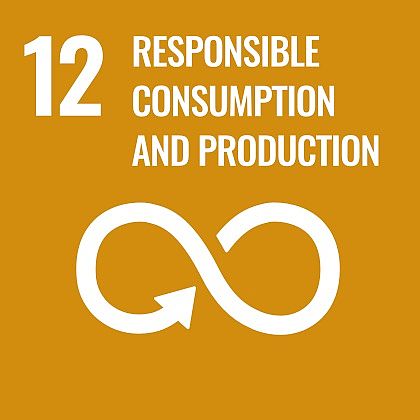

The primary SDGs to which we contribute
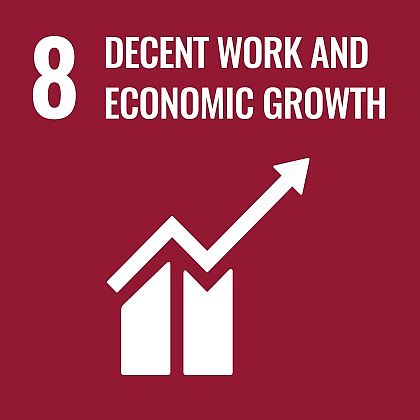
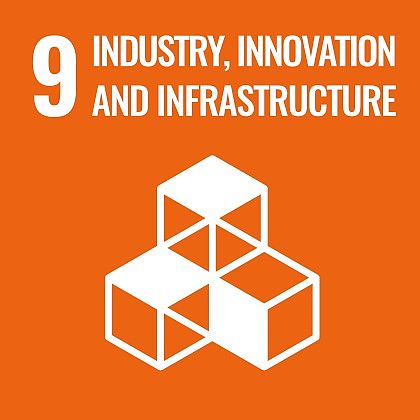
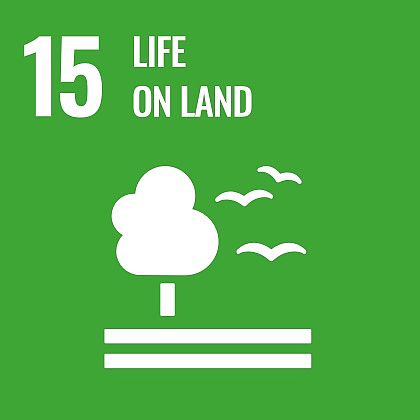

Other SDGs which our business directly supports
These topics may also be of interest to you: